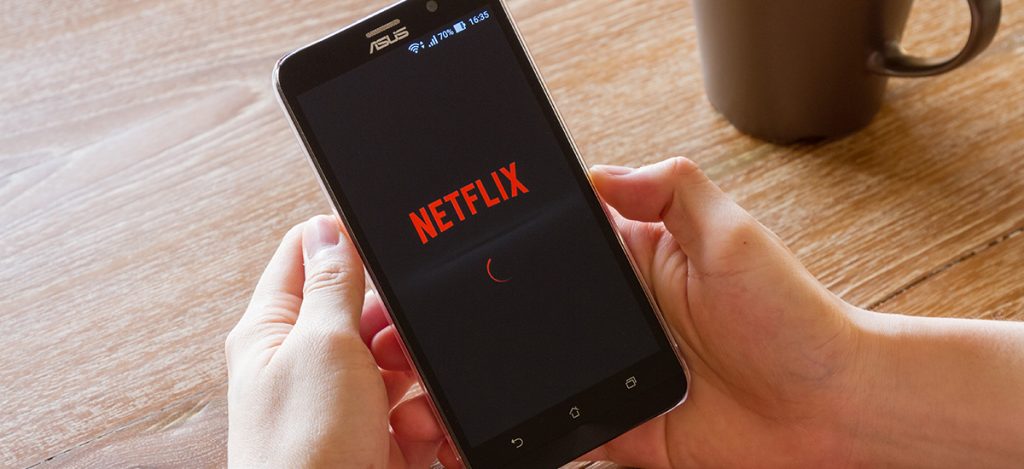Latest News
How much mobile phone data do I need?
By |
13th May, 2020 |
Categories:

In the past, you’d judge a mobile phone contract on how many minutes and texts were included – now it’s all about the amount of data it gives you.
You can put that shift down to the inception of Voice over LTE (VoLTE) which allows you to make and receive voice and video calls using the 4G network.
So, in theory, you could make hundreds of calls and send thousands of messages during a month and not use a single minute or text – provided you have enough mobile data.
Mobile data is also important if you want to browse the internet while on the move, use an app or stream TV, film and music – you can’t always guarantee that you’ll be able to find a WiFi connection to save your data.
So, when sizing up your next mobile phone contract, it’s important that you get the data allowance right – too much and you’ll feel like you’re wasting money; too little and you risk being charged a premium for additional data over and above your allowance.
Research by Citizens Advice suggests that as many as 71% of people on SIM-only deals are overpaying for data they did not use. It found that, on average, consumers are not using 2GB of their data allowance each month, totalling £800 million a year. It claims that consumers could save £63 per a year by switching contracts, too.
SIM-only contracts can have it pros and its cons just like anything in the world. If you'd like to find out a bit more information about why exactly you may or may not want to opt for a SIM-only contract, take a look at our our list of reasons to give yourself a better understanding of this type of contract.
So, how do you ensure you don’t make the same mistake? And how do you protect your device with mobile phone insurance so you don’t lose out if your smartphone is damaged or stolen?
Check your current usage
Checking how much data you use every month is a good barometer of what you need going forward.
Networks are obliged to make it easy for you to find out your usage – it’ll be available either on their website (once you’ve logged into your account) or through their dedicated app on your phone.
You'll be able to see how much data you've used in the current month as well as in the past. If you can see that you’re often left with lots of unused data, you might conclude you’re paying for more than you need.
But, if you’re getting close to – or exceeding – your allowance on a regular basis, you may want to consider a contract that has more data in it.
When measuring your usage, consider whether you’re a low, medium or heavy data user…
Low data user
Perhaps you only pull your phone out of your pocket or bag every now and again to check the odd webpage, email or social media update?
You don’t consume much media – for example, TV, film and music on the go – instead waiting until the evening when you’re connected to your home WiFi. You don’t play a lot of games either, but you might use an app like WhatsApp or Facebook Messenger once in a while to stay in touch with family and friends.
If this sounds like you, you're probably considered a low data user and a contract with a data allowance of around 5GB should more than suffice.
Medium data user
If you need to regularly check emails and download documents for work, or you have quite a bit of spare time to consume online media, you’re probably classified as a medium data user.
That’s because you spend quite a bit of time browsing the internet, using applications and making calls over a network. Perhaps you like nothing more than whiling away an hour on YouTube watching the latest trending videos?
In terms of data allowance, you’ll probably require 5-10GB to cover your usage.

Heavy data user
If you spend hours on your phone each day – as so many of us do now – watching videos, streaming music through a service like Spotify or Apple Music, downloading applications, calling and messaging friends, you’ll probably be considered a heavy data user.
In this always-connected world we now live in, it’s easy to forget what services require some sort of internet connection. For example, if you use Google Maps to help you get from A to B, that uses mobile data (albeit not a lot). In fact, most apps do!
So, whether you rely on your mobile internet for work or are just a social butterfly who can’t get enough of apps like Instagram, Facebook and Twitter, you’re going to need a data allowance in excess of 10GB – or perhaps even an unlimited allowance.
You can check exact usage on your phone. If you have an iPhone, head to Settings, hit Mobile Data and scroll down to see which apps are using the most data. The one that’s eating up the most will appear at the top of the list.
If you’re on an Android device, similar figures are available by going into the Data Usage menu in Settings, which will bring up a detailed graph of how your data usage has changed over the previous months, as well as a list of apps that are consuming the most data.
Which apps consume the most data?
Unless you’re on a contract with unlimited data, it’s handy to know what apps tend to use the most data, so that you can ensure you're managing your media consumption accordingly. uSwitch provides a breakdown of some of the most popular apps in terms of data consumption:
- Streaming one hour of video on Netflix, iPlayer or Amazon Prime – 644MB
- Streaming a two-hour movie in high definition – 4.2GB
- Gaming online for an hour – 43MB
- Streaming an hour of music via Apple Music or Spotify – 80MB
- Browsing through 60 web pages – 140MB
- Download one song – 4–8MB
- Download a film trailer – 60–100MB
- One hour of driving while using Google Maps – 5MB
Knowing this information means that, should you be approaching the end of the month with only a limited amount of data left in your allowance, you can avoid the apps that consume the most mobile data – or at least wait until you’re connected to WiFi.
On the other hand, if you’ve got lots of your allowance left, you could kick back and watch some Netflix over 4G knowing that you’re not going to be charged extra for the privilege.
When you’ve signed your mobile contract, you want to get the most you can out of your monthly data allowance without having to fork out for any usage over and above your agreed limit.
With that in mind, we’ve got a few tips on how to preserve your data so that it lasts the whole month.

What can you do to save your mobile data?
We’ve mentioned it a few times already throughout this article, but we can’t say it enough: WiFi is your best friend when it comes to saving data. Whether you’re connected to your home broadband or a public WiFi hotspot, use it wisely.
Netflix, Amazon Prime and BBC iPlayer all allow you to download content over WiFi which can then be viewed offline.
However, just be mindful that you ensure you have enough storage space on your smartphone – by downloading the TV programme or film, you’re storing it on your mobile to be viewed at a later date.
Get into the habit of deleting any stored content once you’ve viewed it, making space for other shows and movies to be downloaded. Doing this, you’ll never have to ensure a boring train journey again – just load up your show and plug in some headphones.
The same goes for Spotify and Apple Music – you can download playlists, albums and podcasts which can be listened to offline, without them having to be streamed over 4G.
We also mentioned Google Maps earlier and how it consumes data when you’re using it to navigate around the world.
But it, too, allows you to download entire towns, cities and regions, meaning you can put your phone into Airplane mode to preserve both data and your battery and still manage to successfully get to your destination. This is particularly useful when you’re overseas and concerned about the expense of using data.
Can you roll over any data you don’t use?
If your data usage tends to fluctuate from one month to the next, it makes sense to ‘roll over’ any data you don’t use for when you most need it.
So, for example, if you have a 5GB monthly allowance, but you only use 2GB one month, the remaining 3GB will be rolled over into the next month, giving you a new allowance of 8GB for the next 30 days. Is this possible?
Yes, networks now offer data rollover, meaning you can take any unused data from one month and use it the following month.
Some networks will even take money off your next bill for any data you don’t use. However, data rollover is still a relatively new concept and it’s not available on all networks and contracts.
So, you’ll need to do your research if you want to ensure you’re signing up to a contract which allows you to roll over any unused data.
Websites like Sim Sherpa are a good place to start your research – they even have a page on the UK networks with the best unused data schemes. But just be mindful that the offers highlighted will likely be time limited.
If you don’t end up taking out a contract with the rollover option, you might want to download an app that helps you monitor your data usage and control the amount you use on a day-to-day basis.
Available on Android, Datally gives you your hourly, weekly and monthly data usage stats as well as top tips about how to get the most out of your plan.
On the iOS platform, the Data Usage app has lots of the same features as Datally, allowing you to track your data usage and save those pennies.
Alternatively, a similar feature might be available through your network’s dedicated app.

What are the benefits of flexible contracts?
A flexible contract might suit you if you’re finding that your data usage varies a lot from month to month. Instead of tying yourself into a set monthly allowance, you can choose a tariff that lets you switch it up every month.
So, if you know you’ve got a busy month ahead – or the opposite, more time on your hands to consume entertainment media on your smartphone – you can opt to up your data allowance.
Alternatively, if you’re not filling your allowance, you can downgrade your monthly contract to a cheaper one with a smaller allowance.
How will 5G change things?
It would be remiss to write an article on mobile data and not mention 5G. Although 5G is still being rolled out in the UK, some networks are already offering 5G data plans.
5G is around 10 times faster than 4G. It will work at average speeds of 150-200Mbps, and peak speeds will reach above 1Gbps. This means you’ll be able to download a full HD film in around three minutes.
But, unless you have lots of data to play with, there’s the risk of exceeding your allowance more easily – after all, the quicker the loading times, the easier it will be to consume media.
It will also allow you to download UltraHD (4K) and 3D video which will be much bigger in terms of file size than standard videos.
However, you will need to have a 5G-enabled device and a 5G contract to be able to make use of the technology once it reaches your area.
Find award winningphone insurance in the UK
Once you’ve decided on the contract that best suits you and your mobile data usage, make sure it’s covered with mobile phone insurance courtesy of Gadget Cover.
We can provide insurance for your phone if it’s less than 18 months old. Once purchased, there’s no limit to how long your gadget can be covered.
You also need to make sure your device is in good condition and full working order, and that you’re able to provide proof of ownership.
Get a quote for mobile phone insurance today – and in the meantime, why not check out our other blog on 12 iPhone apps to improve your life?


